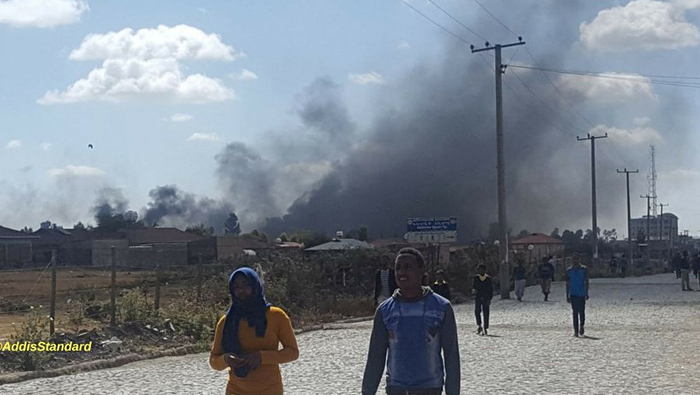
Addis Ababa: Demonstrators blocked roads in towns around Addis Ababa on Tuesday on the second day of a strike called to protest against Ethiopia's continued incarceration of opposition politicians.
The three-day strike across Oromiya province, which surrounds the capital, was held as an opposition leader remained behind bars despite a mass pardoning of dissidents aimed at reducing unrest that has simmered since 2015.
Nearly 6,000 prisoners have been freed since January. Most were detained for alleged involvement in mass protests that broke out three years ago in the Oromiya and Amhara regions over accusations of land grabbing and political marginalisation.
But Bekele Gerba, secretary general of the opposition Oromo Federalist Congress, who was arrested in December 2015, is still imprisoned. He was initially accused with involvement in terrorism, before the charge was reduced to inciting violence.
Last month, he was sentenced to six months for contempt of court after he and other opposition party members sang a protest song during the trial. A verdict on his incitement charge is expected on March 7.
On Tuesday, large crowds marched in various towns in Oromiya and roads remained blocked with large stones, including in Legetafo, around 20 km (12 miles) northeast of Addis Ababa. Markets, schools and banks remained closed in most of the areas, residents said.
"Many Oromo politicians remain unjustly incarcerated, such as Bekele," said one protester in the town of Jimma, who gave his name only as Awol. "All should be released. That is why we are striking."
Sparked initially by an urban development plan for the capital, unrest spread in 2015 and 2016 with demonstrations against political restrictions and human rights abuses. Rights groups say hundreds have died in the violence.
Ethiopia is often accused of using security concerns as an excuse to stifle dissent, as well as suppressing non-governmental organisations and the media, which the government denies.